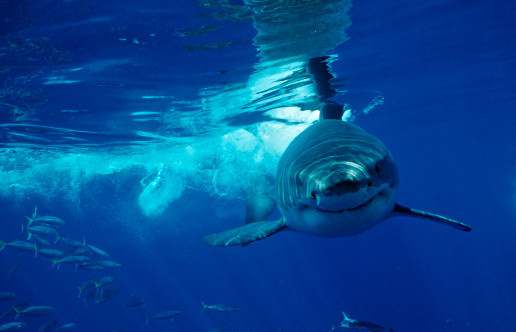Australian researchers develop new tool to prevent shark attacks on humans
Clever Bouy device uses sonar technology to detect shark-sized objects in coastal areas

Australian-based researchers have developed a new tool aimed at preventing shark attacks against humans.
The device, named Clever Buoy, has been developed by Shark Attack Mitigation Systems and Optus, and uses sonar technology to detect shark-sized objects in coastal areas.
When a detection is made, the buoy sends a signal via satellite to alert lifeguards on the beach.
Researchers hope that in the future, the device will be able to identify different shark species and provide scientists with crucial information required to learn more about shark behaviour.
Craig Anderson, co-founder of SAMS, said most of the existing anti-shark technology is based on tagging sharks.
"Less than 5% of sharks in the world are tagged, so this technique is all about finding out about the other 95%," he added.
Meanwhile in the US, a father and son have created a shark repellent device that is worn as a wristband while in the water, and interferes with sharks' electrical sense.
Sharkbanz co-founder Nathan Garrison told Sky News: "When the shark comes near, it creates a really unpleasant sensation for it, akin to having a really bright light shining in your eyes.
"It doesn't harm the shark but it deters it and the shark usually doesn't return to the area after it experiences it.
"As much as it is important for us to protect people from sharks, it's really important for us to protect the sharks from people and make sure we can co-exist harmoniously in the ocean."
In South Africa, researchers are trialling other ways of preventing shark attacks, such as electronic barriers.
This method is being tested in the bay of Glencairn beach in Cape Town, where sharks are a common sight in the summer months.
Despite the promise offered by anti-shark devices, experts warn that they are not 100% fool-proof.
Ali Hood, from the Shark Trust, told Sky News: "As with any activity which takes you into a potentially hostile environment, personal responsibility is of utmost importance.
"Sharks are, after all, wild animals and it's important that people give them the same respect due to any terrestrial predator.
"However, personal safety can be increased by modifying our behaviour and taking local advice into account. Technologies may then add an additional layer of security."
According to Shark Attack Survivors there have been 75 incidents involving a shark encountering a human during 2014. Out of these, six involved a fatal attack on a person.
Scientists have estimated that 100 million sharks are killed each year by humans in 2013. As sharks are slow breeders, scientists doubt shark populations will able to recover if this rate continues.
© Copyright IBTimes 2025. All rights reserved.





















